If the question “How does day trading stocks work?” has been keeping you up at night, don’t worry…I’m going to give you some of the basics right here.
The first thing you need to know is that if you’re day trading stocks, that means that you are entering and exiting ALL of your trades within the same trading day.
If you’re day trading, you NEVER hold any trades overnight.
You close them out before the end of the trading day.
Each. And. Every. Time.
If you end up holding your trade over night, you’re doing what’s called “swing trading”, and you can read more about that in this article here.
How Does Day Trading Stocks Work?
 Before you can get trading, you first have to make sure you have opened (and funded) a trading account with a great online broker.
Before you can get trading, you first have to make sure you have opened (and funded) a trading account with a great online broker.
I use Questrade and recommend that you do too (if it’s available in your country).
If you live in the USA, you can check out my recommendation for a trading account for you here.
From there, you need a reliable high-speed internet connection and a computer that meets the minimum requirements of your online broker (check their website for more details).
Personally, I recommend getting a really fast computer – not just one that meets the minimum requirements of your broker.
If you’re day trading – depending again on the broker that you’re using – you might have to upgrade your account if they don’t give you up-to-the-moment real time trade updates.
Some online brokers have delayed stock quotes that they give you unless you upgrade to a certain level of service (so be sure to read the fine print).
But make no mistake about it: if you’re day trading you absolutely MUST HAVE real time stock data.
As you’re going to be trading in and out of stocks rapidly there’s no way that you’ll be able to use 15 or 20 minute old delayed data and be successful.
If you’re swing trading, sure, you can probably get away with it.
But not if you’re day trading.
So make sure you check into that right away if you’re wanting to be a day trader.
The next thing you’ll need is a pretty decent amount of money that you can trade with.
And this needs to be money that you can afford to lose.
You need a lot of money to trade with because if you’re day trading you’re trying to make money from small little price movements in the stock.
And in order to make some decent money, you will have to trade a lot more shares of stock than you normally would in order to make the profit per trade worth the risk.
Most day traders won’t risk more than 1% of their total account size on each trade, so you can quickly see how you will have to trade large blocks of stock in order to make decent money.
If you risk more than 1 or 2% of your account on any day trade (especially if you’re just learning), you’re putting yourself at risk to get wiped out.
The Most Important Thing To Learn When Day Trading Stocks
The most important thing that you can do – regardless of whether you’re day trading, swing trading, or whatever – is to develop a trader’s mindset.
This is where you develop the discipline needed to come up with a trading strategy and stick to it, learn to deal with the constant ups and downs of trading and exercise proper money management.
For some, this is something that comes naturally and for others it takes a while to learn.
The Most Important Thing To DO Before Trading Stocks
The most important thing that you can do before trying to day trade stocks is to develop and practice your trading strategies using a practice account (Questrade has one you can use for free here).
And the thing that goes hand-in-hand with that is to get some training and education on exactly how to trade.
Invest in yourself – buy trading books and read them. Do a lot of research. Follow along and join a group of traders who will let you copy their trades. (Just make sure they’re experienced traders first!)
And be sure not to be too hard on yourself.
Learning to trade could take you a few years so be patient.
When people are learning a new profession like becoming a doctor or a lawyer, they go to school for YEARS first in order to learn and develop the skills needed to be successful.
And if you look at trading the same way, you’ll have the correct mindset to go into it.
Here are a few questions people often ask along these lines:
What is day trading stocks?
Day trading is the act of buying and selling stocks within the same day.
What is day trading? To day trade successfully, you need to analyze technical patterns well enough to predict what stocks are “likely” to increase or decrease in value. Then, you buy these stocks at a price where your expected gain outweighs the cost to own them for one business day. If your prediction was incorrect, sell it back before market hours end so you don’t lose much money on any single investment. Hold onto investments that go well for an allocated amount of time (according to how long it will take the investment return plan).
What are the best ways to day trade stocks?
The best way to day trade stocks is to turn the process into a research paper. Explore all angles of trades, look at news headlines or uncovering missing analysis you might have missed – whatever it takes to fully understand what the stock is currently worth, what its prospects are for future growth, and also how much volatility comes with owning that stock. Make sure you’re well informed before any trade because if you don’t know your facts then that’s when problems start.
Day trading can be profitable but it carries risks too – one never knows when a share price will tumble quickly in either direction. So make sure you take this idea seriously and keep records of your purchases since clearly not all shares are created equal.
How much does the average day trader make?
It really depends on how much they work and the type of trading they’re doing. One day traders in tech stocks usually make around $100-$200 in a single day, and in commodities it’s more than that.
How much do you need for day trading?
You need a minimum of $25,000 in an account before you will be allowed and approved to day trade.
How does forex work?
The foreign exchange market (forex, FX, or currency market) is a global decentralized and high-stakes financial market of which trade in different currencies takes place. For most traders of the foreign exchange markets the objective is to profit from selling when values are low and buying when values are high.
The best way to do this is with technical analysis which means looking at charts with patterns that repeat over time to predict what will happen in the future.
You can either go out on your own and set your orders by hand, trade on an hourly basis using a platform like eToro or you could automate things entirely with a strategy informed by technical analysis software such as Meta Trader 4.
What are penny stocks and how do they work?
Penny stocks are financial securities with a share price of less than $5.00 USD or CAD. Value investors often find penny stocks to be an attractive option, because they trade at lower prices and offer the potential for higher returns. Penny stocks can also be risky investments, but this is generally true for any stock of any given company, no matter the share price.
Since low-priced stocks are more volatile than higher-priced ones, some traders use them as hedges to offset the risk in their portfolios; however, it’s difficult to know how long a specific penny stock will stay below $5.
What are some types of options in stock trading?
Types of stock trading includes puts, calls, index shares, individual shares, shorting stocks. The customer chooses the option by analyzing its risk profile and cost – putting up collateral for share positions with leverage (a downside is potential losses), or holding positions without outlay (no opportunity for upside).
Note: Most people who trade stocks choose to use options contracts because they provide an excellent way to increase your profits without having to put down any money. If you’re thinking about getting into the game but don’t want to invest your own cash at first then I highly recommend that you start with options instead.
How does Option Trading work in the real world?
Option Trading means owning the option to buy or sell shares of a company or other financial instrument for a given price before an expiry date. There are many different types of option trades, but they fall into two categories- call and put. When you buy a call, you’re purchasing the right to purchase the underlying security at a set price by a certain date for a certain amount of time. Put trading is buying the right to sell something at a certain price and within a specific number of days. The return on investment with options trading is that if done correctly with limited risk, you can use them as hedging instruments that reduce your risk with trending markets while preserving upside potential in less risky markets.
What is the daily trading limit on stocks?
The Nasdaq has a long-term opening auction limit of 250.000 per day. The premarket bids can’t go over 125,000, but the closing is said to be unrestricted.
Where can I trade penny stocks online?
With penny stocks, the trades are often smaller than online trading of other securities. By law, “penny stocks” can’t be listed on an exchange with pricing above $5/share.
In order to trade them you have to look into the pink or OTC markets.
What is a stock market API?
An API is a web service that accepts and returns standardized, computer-processable data. One common use of APIs is to access information from a database or remote service.
A stock market API provides a way to ‘talk’ to different stock markets/exchanges through the internet so that you can request specific information — such as making trades, looking up quotes for particular securities, etc.
How to trade stocks with a small account bid trading
Whether it’s small, already paying for you to maintain the account, or big – the same principles apply. You need an active trading system that is designed around your goals and time horizon. For example, if you are just starting off with a small balance, establish which of their strategies can get you to your desired level fastest with minimal risk.
For most people who have not had any finance training this will not be an easy task so they should start by finding a broker that offers education on the topic of stocks trading along with access to educational material on how stock trading works specifically in their country.
What are the benefits of day trading stocks?
-Quick and easy trading mechanism.
-Ability to trade stocks and other securities on margin to build a vast portfolio quickly, making returns that may outpace the market averages.
-Risks include extensive use of capital and potentially massive losses per trade when using margin or by purchasing stocks at inflated prices or for long stretches of time if the trader’s analysis is flawed.
-High turnover creates more opportunities for commissions which can be converted into large profits in short periods. One has to pay attention when day trading, though, as it requires constant attention in order to remain profitable.
How does online trading work?
Online trading is a service where traders can buy and sell stocks from their own homes. The service was created to allow people who have an interest in investing but do not want to open up accounts on specific brokerage sites – for example, TD Ameritrade or E*Trade.
Before buying stocks online, it’s important that people take the time to research different stock brokers, what it means to invest online, the costs involved with the various transactions that are necessary for each company, whether there are any fees associated with closing an account after many years of trading, which trades offer potential returns of over 12%, and more.
What are the best stocks to trade?
The best company to invest in would be Microsoft or Google.
While many stocks are “safe” investments, not all of them will give you the same ROI for your money. Basically, there are some companies that pay out dividends from a percentage of the company’s profits which may go up or down year over year and there are companies that offer a share buyback plan. A share buyback plan is seen as more of a long-term value for your money because you can choose how much to purchase at any point whereas dividends fluctuate each quarter, but they’re also less predictable than stock prices which go up and down on their own with market volatility.
What are day trading tips?
One of the most important trading tips is to be humble and resist any temptations. You have a small chance at succeeding, so don’t rely on it as a ticket to riches. Follow the rules, don’t chase anything with an unrealistic return, never take positions that are too big for your account size or emotional capability.
Rule One: Never give up control of your emotions or they can lead you off course from rational decisions
Rule Two: Always trade within the limits of what you can afford
Rule Three: Never use more than 3/10ths of your loser’s loser margin Rule
Four: Never lose what you cannot afford to lose
What are the pros and cons of options vs penny stocks?
Option trading is much more straightforward. While it does require one to pay upfront capital, the trader has the ability to profit in up or down markets because one does not have to buy at a specified price where he believes will make money in order for them to profit. Penny stocks are risky and expensive – you often have no idea what company your investing in until well after buying, which quantifies whether trading them makes sense financially.
The features that come with these two securities are opposite expressions of the same thing; while options give traders more flexibility than penny stocks, they also take up more capital out of pocket.
Penny stocks usually offer hours or days instead of months or years, but require that other safety measures be taken into account before buying shares.
Along those lines, I have a few places that I recommend you start:
- The Empirical Collective – This is our exclusive trading membership site where my team and I hand out simple to follow stock option trades every week (sometimes it’s more often than that). Our trades are focused on swing trading. My team and I have been trading for years and we’ve enjoyed an incredible amount of success. We have a great educational section on trading, the stock trade alerts and a great bonus section. If you’d love to look over our shoulder and maximize your chances of making money immediately, you can sign up through this discounted link here.
- The Day Trading Manifesto – If you’re really interested in getting started day trading, I feel that this is one book that you absolutely need to read before you get started. And you can get it cheap through Amazon. This one book is the complete answer to, “How Does Day Trading Stocks Work?”
- Penny Trading Stock Alerts – If you’re wanting to learn how to trade penny stocks, this is the only guy to learn from. Don’t waste your time going to other people, as this guy’s got a verified track record and became a millionaire trading penny stocks before he was 22. Trading penny stocks is super risky and if you want to get started, you need to have someone show you the ropes, or you’ll do nothing but lose money.
- Small Cap Stocks – If you don’t want to trade options, you can trade small cap stocks. And if that’s the route you want to take, I suggest following along with the alerts here as he’s one of the most consistent traders in the business. I prefer to leverage my money a little more by trading options, but if that isn’t for you this might be a close second.
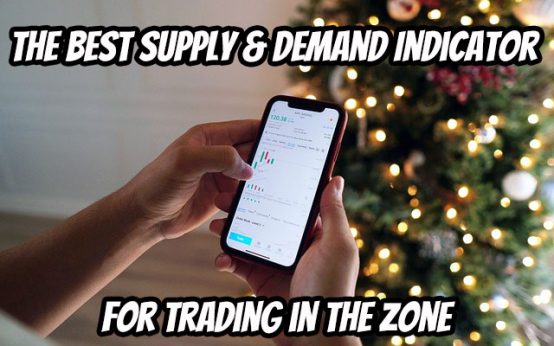 The Best Supply and Demand Indicator for Trading in the Zone
The Best Supply and Demand Indicator for Trading in the Zone 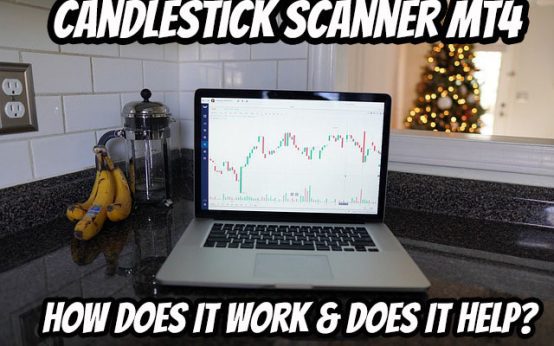 Candlestick Scanner MT4: How Does It Work & Does It Help?
Candlestick Scanner MT4: How Does It Work & Does It Help? 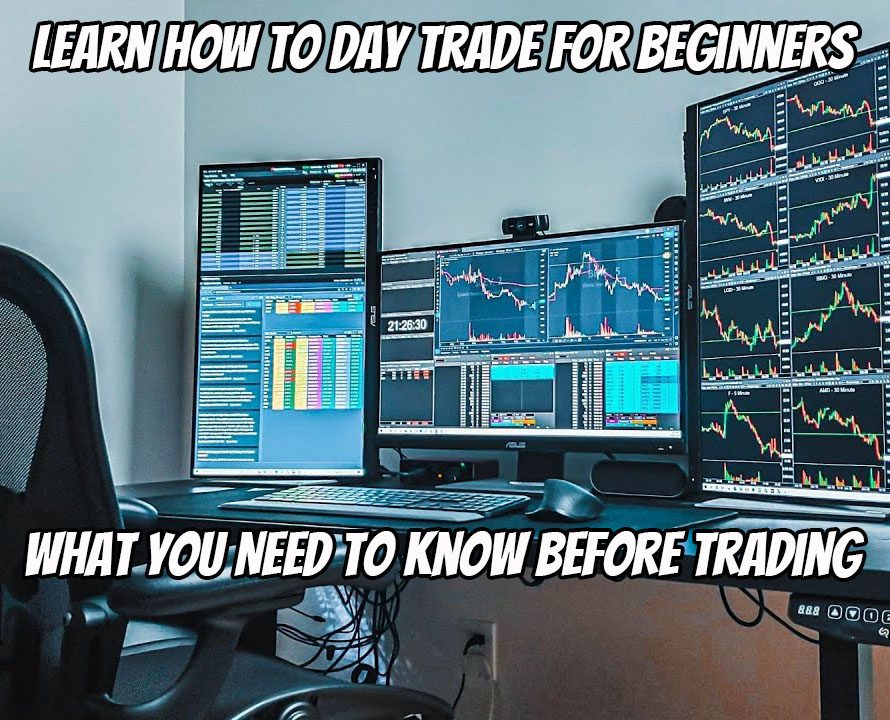 Learn How to Day Trade for Beginners – What You Need To Know Before Trading
Learn How to Day Trade for Beginners – What You Need To Know Before Trading 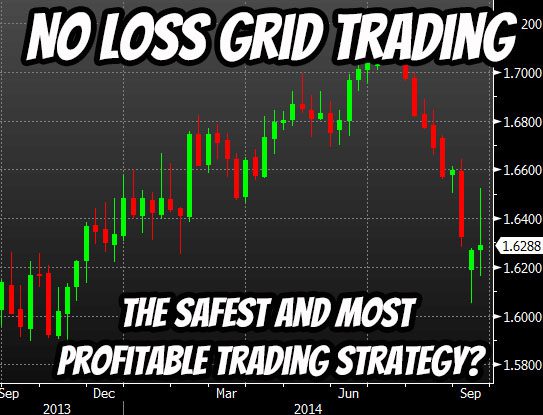 No Loss Grid Trading – The Safest and Most Profitable Trading Strategy?
No Loss Grid Trading – The Safest and Most Profitable Trading Strategy? 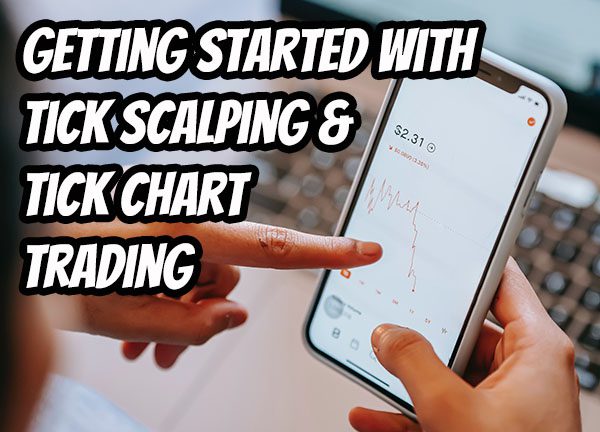 Getting Started With Tick Scalping & Tick Chart Trading
Getting Started With Tick Scalping & Tick Chart Trading  Shark Fin Trading Indicator: Here’s How to Discover This Harmonic Trading Pattern
Shark Fin Trading Indicator: Here’s How to Discover This Harmonic Trading Pattern